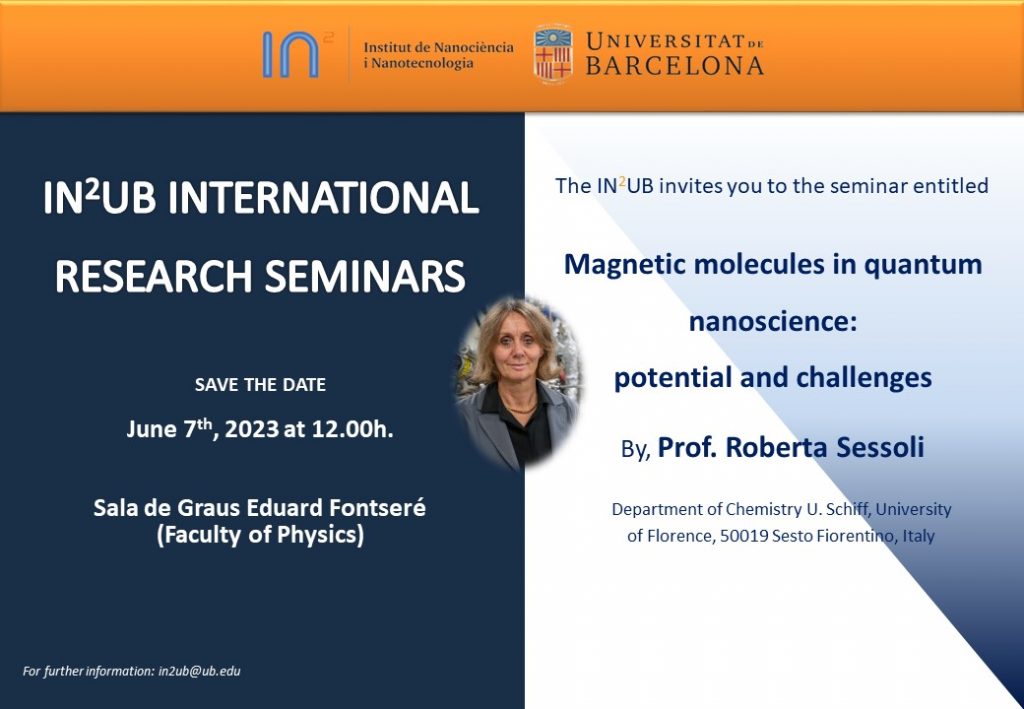IN²UB INTERNATIONAL RESEARCH SEMINARS
Magnetic molecules in quantum nanoscience: potential and challenges
June 7th, 2023 at 12.00h – Sala de Graus Eduard Fontseré (Faculty of Physics)
By, Prof. Roberta Sessoli, Department of Chemistry U. Schiff, University of Florence, 50019 Sesto Fiorentino, Italy
(Chaired by, Prof. Albert Escuer, IN²UB and Faculty of Chemistry)
Abstract: Implementation of advanced Quantum Technologies might benefit from the remarkable quantum properties shown by molecular spin systems based on the coordination bond.[1] The versatility of the molecular approach combined with rational design has recently boosted the operativity temperature of molecules acting as bits of memory, otherwise known as Single-Molecule Magnets, or the coherence time of molecular spin qubits. Molecules can also be processed to be deposited on surfaces, allowing the realization of hybrid nanostructures.[2] However, the molecular approach also poses key challenges, requiring for instance overcoming limitations such as those induced by low-energy vibrational modes typical of molecular lattices. Achieving the control of a single molecule is also challenging, requiring coupling the electric field, which can be confined at the molecular scale, with the spin degrees of freedom of the molecule. Initialization of spin systems is also an issue because only at very low temperatures does the Zeeman interaction overcome the thermal energy. Learning from nature, we are proposing to exploit chirality, and in particular spin selectivity in electron transfer processes through chiral structures, as an alternative way to spin polarize molecular systems.[3] An overview of our recent results will be provided.
- Atzori, M.; Sessoli, R. J. Am. Chem. Soc. 141, 11339-11352 (2019).
- Serrano, G. et al. Nat. Mater. 19, 546–551 (2020).
- Chiesa, A. et al. Adv. Mater. 2300472 (2023).
With the support of PhD Program on Nanoscience

